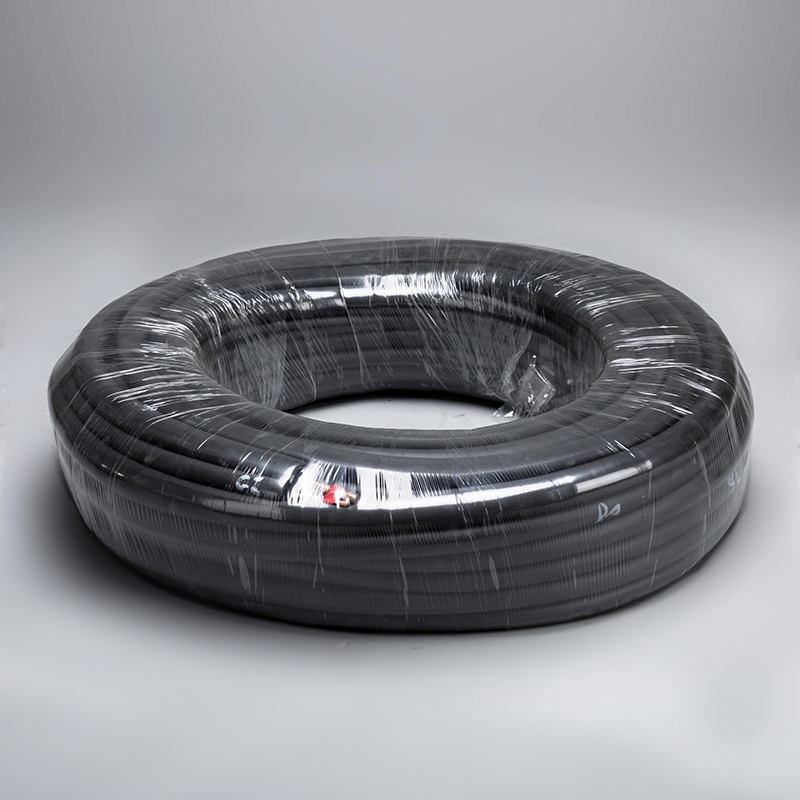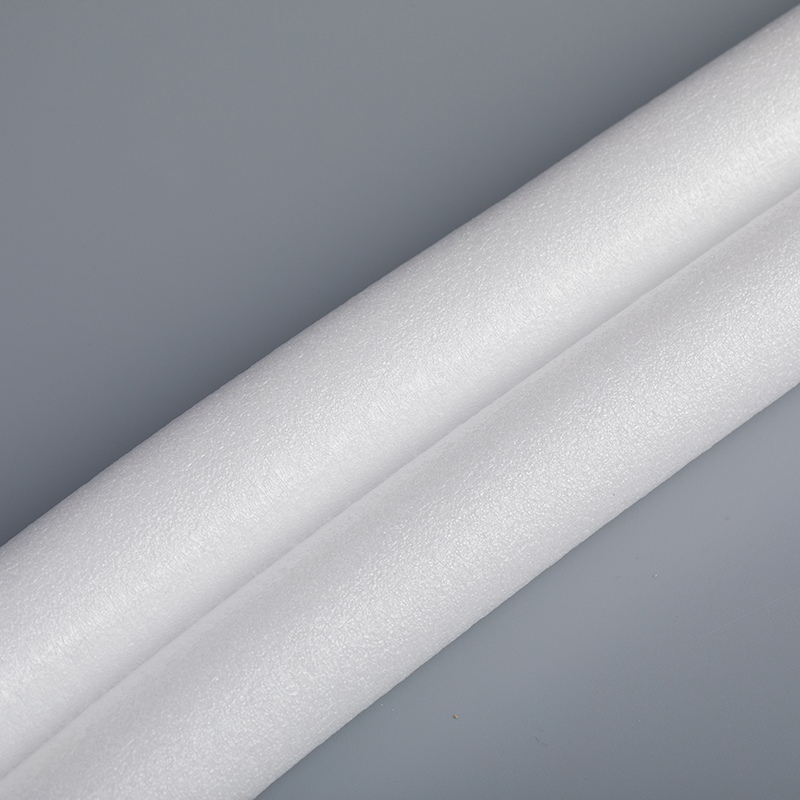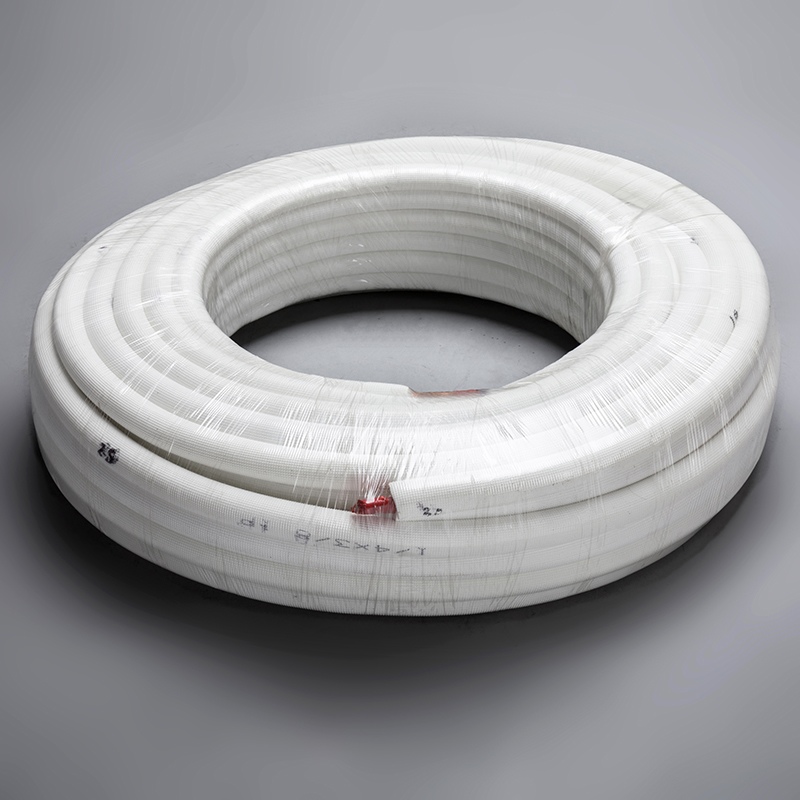Effective Insulation Tips for AC Copper Pipes

Proper air conditioner copper pipe insulation is essential to prevent air conditioner copper pipe sweating, which is vital for maintaining your system's efficiency. When humid air encounters cold surfaces, it leads to condensation, resulting in sweating pipes. This moisture can cause significant water damage, including mold, mildew, and wood rot. By ensuring effective insulation of your air conditioner copper pipes, you protect your home from these risks and enhance your AC's performance. Addressing this issue not only safeguards your property but also ensures a more efficient cooling system, saving you from costly repairs and energy wastage.
Understanding Air Conditioner Copper Pipe Sweating

What is Air Conditioner Copper Pipe Sweating?
Air conditioner copper pipe sweating occurs when moisture from the air condenses on the surface of the copper pipes. This phenomenon happens because the pipes are colder than the surrounding air. When warm, humid air comes into contact with these cold surfaces, it cools down rapidly, causing water droplets to form. This process is similar to how dew forms on grass in the early morning. You might notice this sweating on your AC pipes, especially during hot and humid weather. It's a common issue that can lead to various problems if not addressed promptly.
Causes of Air Conditioner Copper Pipe Sweating
Understanding the causes of air conditioner copper pipe sweating helps you take preventive measures. Two primary factors contribute to this issue: temperature differences and humidity levels.
Temperature Differences
Copper pipes in your air conditioning system carry refrigerant, which absorbs heat from your home and releases it outside. This process keeps the pipes significantly cooler than the ambient air. When the temperature difference between the pipes and the surrounding air is substantial, condensation becomes more likely. Poor insulation exacerbates this problem, allowing the cold surface of the pipes to come into direct contact with warm air. This lack of insulation can lead to excessive sweating, corrosion, and even safety hazards.
Humidity Levels
Proper insulation and humidity control are essential to prevent this. Using dehumidifiers and ensuring good ventilation can help maintain optimal humidity levels. By managing these factors, you can reduce the risk of condensation and protect your air conditioning system from potential damage.
Air Conditioner Copper Pipe Insulation Tips

Proper insulation of your air conditioner copper pipes is crucial to prevent sweating and maintain efficiency. By selecting the right materials and following a step-by-step guide, you can ensure your pipes remain dry and functional.
Selecting the Right Insulation Material
Choosing the appropriate insulation material is the first step in effective air conditioner copper pipe insulation. Two popular options are foam and rubber insulation.
Foam Insulation
Foam insulation is a common choice for residential applications. It is lightweight, easy to install, and provides excellent thermal resistance. Foam insulation helps maintain the temperature of the copper pipes, reducing the risk of condensation. It is also cost-effective, making it a popular option for homeowners looking to insulate their AC pipes without breaking the bank.
Rubber Insulation
Rubber insulation, also known as flexible elastomeric closed-cell foam, is composed of synthetic rubber. This type of insulation is ideal for commercial and industrial applications due to its lower thermal conductivity and higher continuous operating temperature. Rubber insulation offers more predictable fire behavior, making it a safer choice in environments where fire safety is a concern. Its durability and flexibility make it suitable for various pipe configurations.
Step-by-Step Insulation Guide
Once you've selected the right material, follow these steps to insulate your air conditioner copper pipes effectively.
Measuring and Cutting Insulation
Measure the Pipes: Use a measuring tape to determine the length and diameter of the copper pipes. Accurate measurements ensure that the insulation fits snugly.
Cut the Insulation: Using a sharp utility knife, cut the insulation material to the required length. Make sure the cuts are clean and straight to avoid gaps.
Securing Insulation Properly
Wrap the Pipes: Carefully wrap the insulation around the copper pipes, ensuring there are no exposed areas. Overlapping the edges slightly can help create a tight seal.
Seal the Joints: Use adhesive tape or self-adhesive insulation sleeves to secure the insulation in place. This prevents moisture from seeping in and causing condensation.
Inspect the Insulation: After installation, inspect the insulation for any gaps or loose areas. Properly secured insulation will provide the best protection against sweating.
By following these tips, you can effectively insulate your air conditioner copper pipes, reducing the risk of sweating and enhancing the efficiency of your cooling system.
Additional Preventive Measures
To effectively prevent air conditioner copper pipe sweating, you should consider additional measures beyond insulation. These steps will help maintain optimal conditions for your AC system and reduce the risk of condensation.
Maintaining Proper Humidity Levels
Controlling humidity levels in your home is crucial to preventing pipe sweating. High humidity increases the likelihood of condensation on cold surfaces. Here are some strategies to manage humidity:
Using Dehumidifiers
Dehumidifiers can significantly reduce moisture in the air. By removing excess humidity, they help maintain a balanced environment, minimizing the chances of condensation on your AC pipes. Place dehumidifiers in areas with high humidity to keep the air dry and comfortable.
Regularly Checking Humidity
Regularly monitor the humidity levels in your home using a hygrometer. Aim to keep indoor humidity between 30% and 50%. If levels rise above this range, take action to reduce moisture. Consistent monitoring allows you to address issues promptly, preventing potential damage from pipe sweating.
Ensuring Good Ventilation
Proper ventilation plays a vital role in preventing condensation. Good airflow helps maintain consistent temperatures and reduces the risk of moisture accumulation.
Improving Airflow
Enhance airflow by keeping vents and registers open and unobstructed. Ensure that furniture or curtains do not block air circulation. Improved airflow prevents cold spots and reduces the likelihood of condensation forming on your AC pipes.
Regular Maintenance Checks
Conduct regular maintenance checks on your HVAC system. Clean or replace dirty filters to ensure efficient airflow. Low airflow, often caused by clogged filters, can lead to excessively cold vents and increased condensation risk. Regular maintenance keeps your system running smoothly and prevents sweating issues.
Conduct regular maintenance checks on your HVAC system. Clean or replace dirty filters to ensure efficient airflow. Low airflow, often caused by clogged filters, can lead to excessively cold vents and increased condensation risk. Regular maintenance keeps your system running smoothly and prevents sweating issues.
By implementing these additional preventive measures, you can effectively manage humidity and airflow in your home. This proactive approach will protect your air conditioning system from potential damage and enhance its overall efficiency.
Common Mistakes to Avoid
When insulating your air conditioner copper pipes, you might encounter some common pitfalls. Avoiding these mistakes ensures that your insulation efforts are effective and long-lasting.
Using Incorrect Insulation Materials
Choosing the wrong insulation material can lead to inefficiencies and potential damage. You should select materials specifically designed for AC copper pipes, such as foam or rubber insulation. These materials provide the necessary thermal resistance to prevent condensation. Using inappropriate materials can result in poor insulation performance, leading to sweating and potential water damage.
Case Study: A Case Study of Insulation Failure
In a notable case, inadequate insulation in a cold addition failed to solve the issue of cold spaces. The insulation in the crawlspace did not effectively address the problem, highlighting the importance of selecting the right materials for specific applications. This example underscores the need for proper insulation choices to avoid similar failures.
Ignoring Regular Maintenance
Regular maintenance is crucial for the longevity and efficiency of your air conditioning system. Ignoring this aspect can lead to several issues, including increased condensation on copper pipes. You should conduct routine checks to ensure that the insulation remains intact and effective.
Inspect Insulation: Regularly check for any signs of wear or damage. Replace any compromised sections promptly to maintain optimal performance.
Monitor System Performance: Keep an eye on your AC system's efficiency. Any drop in performance might indicate issues with insulation or other components.
Schedule Professional Inspections: Consider having a professional inspect your system periodically. They can identify potential problems early and recommend solutions.
By avoiding these common mistakes, you can ensure that your air conditioner copper pipes remain well-insulated and efficient. Proper material selection and regular maintenance are key to preventing issues and safeguarding your system's performance.
When to Seek Professional Help
Identifying Complex Issues
Sometimes, despite your best efforts, you might encounter complex issues with your air conditioner copper pipes that require professional intervention. You may notice persistent sweating or unusual noises from your AC system. These signs often indicate underlying problems that need expert attention. Clarke & Rush, experts in HVAC services, emphasize the importance of recognizing when to call in professionals. They suggest that understanding your AC system and knowing when to seek help can prevent further damage and costly repairs.
If you find that your insulation efforts are not effective, or if you suspect a refrigerant leak, it's time to consult a professional. Refrigerant leaks can cause your pipes to become excessively cold, leading to increased condensation and potential system failure. Professionals have the tools and expertise to diagnose and fix these issues efficiently.
Benefits of Professional Inspection
Enlisting the help of certified heating and cooling professionals offers several advantages. Action Air Conditioning highlights the importance of professional diagnosis when you can't determine the cause of sweating AC vents. Their certified experts can accurately identify the problem and provide effective solutions.
Accurate Diagnosis: Professionals use specialized equipment to pinpoint the exact cause of your AC issues. This ensures that the problem is addressed correctly, preventing further complications.
Expert Solutions: With their extensive knowledge and experience, HVAC professionals can recommend the best course of action for your specific situation. They can suggest advanced insulation techniques or necessary repairs to enhance your system's efficiency.
Preventive Maintenance: Regular professional inspections can help identify potential issues before they become major problems. This proactive approach saves you time and money in the long run.
Peace of Mind: Knowing that your AC system is in the hands of experts provides peace of mind. You can trust that they will handle any issues with care and precision, ensuring your system operates smoothly.
By recognizing when to seek professional help, you can maintain the efficiency and longevity of your air conditioning system. Don't hesitate to call in the experts when faced with complex issues. Their expertise and guidance will ensure your AC system remains in top condition, providing you with a comfortable and efficient home environment.
To prevent air conditioner copper pipe sweating, you should focus on proper insulation and regular maintenance. Implementing these tips can enhance your AC system's efficiency and protect your home from potential water damage.
Insulate Effectively: Use foam or rubber insulation to keep pipes dry and maintain energy efficiency.
Maintain Regularly: Check your system frequently to ensure optimal performance and avoid costly repairs.
"Proper insulation and professional help can lead to energy efficiency and cost savings."
By following these steps, you ensure a comfortable and efficient home environment.
See Also
Enhance Your AC Performance Using Copper Pipe Insulation
Find the Perfect Insulation Solution for Copper Pipes
Reasons to Opt for Copper Pipes in AC Systems


